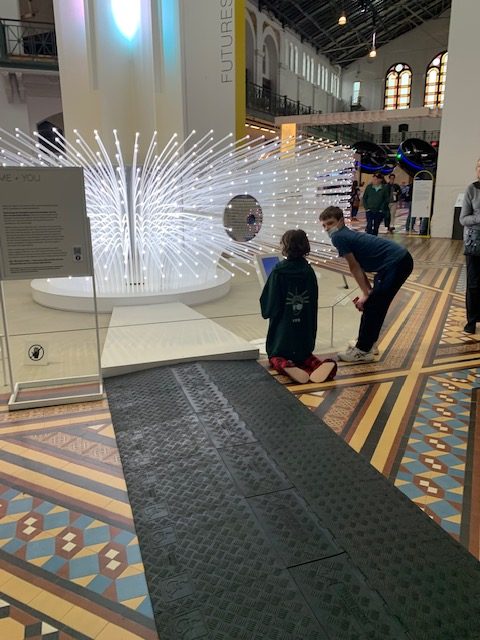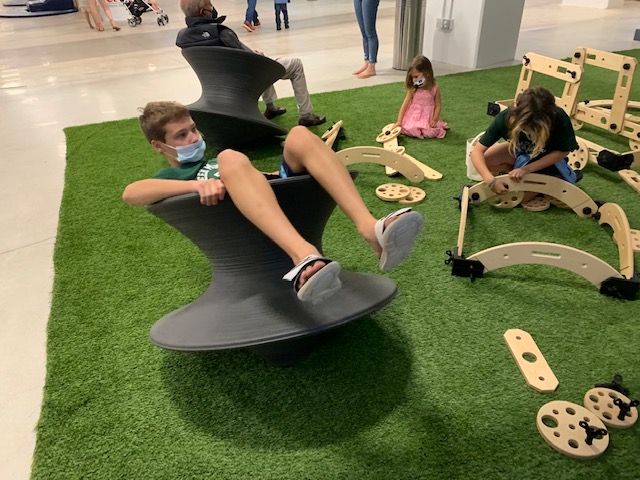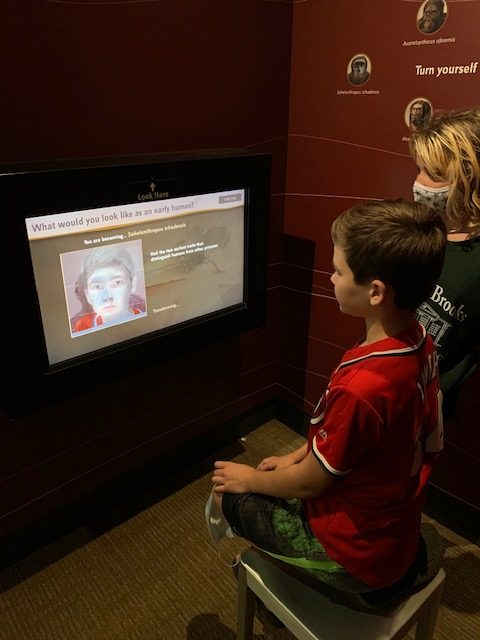When our neurodiverse family travels, it’s always an adventure. But it’s not the only kind of adventure we have, or that seems to be worthwhile for us.
Living in the Washington DC area, there’s a lot of adventure in our own backyard – all of the tourist sites and entertainment venues of DC (see Rocket Around Washington DC – Part 1); many places to visit in nearby historical cities – including Alexandria, VA (Old Town Alexandria and Mount Vernon – President George Washington’s home) and Annapolis, MD, (pic); Arlington National Cemetery; different battlefields, national and state parks, and beaches; seasonal festivals, fairs and other events; places along the Amtrak line, such as Baltimore – the list seems endless.

In my view, adventure can be had almost anywhere, even if you don’t live near a major city. An adventure is just a new experience or a new twist on a previous experience. It’s what gets our family off the couch, out of the house, and in discovery mode.
Rocket Around is about travel and adventure, since, IMHO, both can be good for the neurodiverse family and individual, can present similar challenges, and strategies that make one easier can also work as your family is pursuing the other. Our family personally has had close-to-home adventures that have run, or almost run aground – because of everything from pandemic closures to food-related ‘hanger’ to a lack of planning or too much spontaneity on my part – and on the flip-side we’ve seen the benefits of putting a checklist of strategies-for-success in place.
Our Supportive Vision can work just as well for the not-far-away National Museum of American History as it can for the Louvre. So we’ll cover both in our blogs, and hope you’ll share feedback from both your travel and close-to-home adventures.
Adventure can be a micro-version of travel for neurodiverse families – you have to transition, get there, possibly wait in line or deal with crowds, deal with expectations that may or may not be met, maybe there are sensory challenges from noise, a bright, too-hot or too- cold environment, the pandemic has led to unforeseen changes such as closed-on-Mondays or the need for advanced tickets, and maybe your neurodiverse family members thought they wanted to be along for the adventure but then changed his or her mind part of the way through.

And strategies that help neurodiverse families have a better travel experience can also work well for close-to-home adventures. Strategies to consider for nearby adventures include:
- Pre-adventure planning – know what the adventure will entail for the family – how long will it take to get there; how will you get there, and, if you’re driving, where will you park; what food options are nearby if you’ll be gone during a meal, what will your family find interesting about it – and think about it from the perspective of your neurodiverse family members.
- Involve neurodiverse family members in the planning and preparation – have a family meeting to talk through the adventure, and find out what aspects of it seem most interesting to your family members. Then talk through what each person can do to prepare.
- Offer preview statements about the adventure – communicate with neurodiverse family members when you’ll be leaving for the adventure and when you’ll need them to be ready to go. For our family, multiple preview statements work best.
- Put together a day pack that includes everything a neurodiverse family might need to make an adventure work out well, or to get it back on track. In addition to tickets and money, our pack might include water, snacks for energy, reading material relevant to the adventure, manipulatives, tissues, devices to keep in touch and headphones, a deck of cards or easy-to-bring game, pen/pencil and paper. If the adventure includes a car ride, we also plan on a book on tape – that tends to reduce anxiety levels enroute.
- If possible, pursue your during non-peak times, to reduce exposure to crowds, lines, and noise.
- Eat before you go and bring food along for the excursion.
- Encourage the kids to take pictures during the journey – their perspectives are unique and their pictures can be terrific. Plus it allows them to be involved in the experience, rather than just being along for the ride.
- Look for neurodiverse-supportive elements wherever your adventure is taking place – e.g., quiet rooms or places you can use if a neurodiverse family member needs a break, collateral that involves them in the experience (scavenger hunts are a favorite of ours; audiobooks or picture pamphlets also work well), opportunities for families with special needs to skip lines, etc.

Neurodiverse travel experts also encourage families to utilize close-to-home adventures as a way to ease into bigger trips. For example, consider visiting local restaurants that offer food from wherever it is you’re planning to visit; look for books in your local book store about places you’re interested in or planning to visit; seek out exhibits at local museums that offer information or history about an intended place of travel, or even organize your own at-home movie festival with films that relate to wherever it is you hope to go.
Adventures also help our neurodiverse family better understand the world around us, and the many different perspectives within it.
Tell us here about your favorite close-to-home adventures and why they’re good for your neurodiverse family. Did you have any Labor Day adventures? Happy adventures to you and yours!

